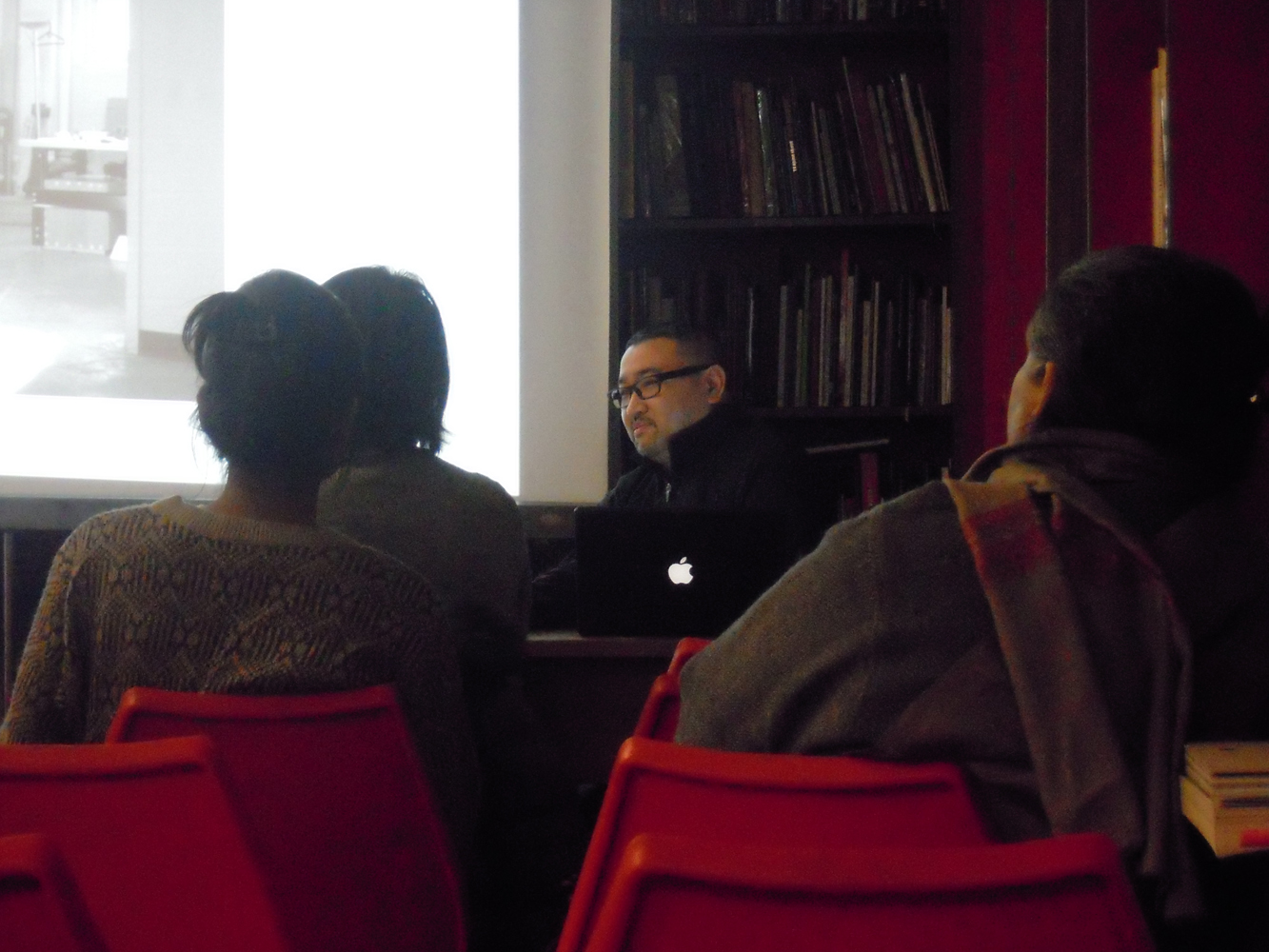Foundation of Indian Contemporary Art & The Japan Foundation, New Delhi invite you to
Artist Talk | Hiroharu Mori
Film Screening | Aki Yahata
Saturday, 17 December 2011 | 4-6pm
FICA Reading Room | D42, Defence Colony, New Delhi 110024
FICA is pleased to collaborate with The Japan Foundation to organise this event around the exhibition Omnilogue: Journey to the West. This evening's programme will include Mori introducing his work and talking about his project at the Journey to the West show, followed by the screening of Michiko Church (2008) a film by Aki Yahata.
Hiroharu Mori works with a wide range of media including text, photography, installation performance and video. His visual practice draws strongly on language through stories, scripts, songs and idioms sourced offline as well as online (through the internet, text messages, etc.). Questions play an important role in Mori's works: the seeming simplicity of an interesting question invites audiences to enter the work and explore the artistic process. His project for the Journey to the West exhibition is titled Workshop of Death; it is a video installation comprising documentation of a workshop conducted collaboratively by the artist and a group of young actors. Mori has realised this work in an Indian context, through a three-week workshop that attempts to engage with the idea of death, more specifically one’s own death. Participants were asked to imagine and act out the moment of their death as a short theatrical play. Throughthe process of deliberating on their life to propose a rational projection of own death, that is habitually, biologically predisposed to resist and avoid death, and through acting out the moment of death, Mori challenges the human imagination.
Born in 1969 in Kanagawa, Japan, Mori obtained Master of Science in Visual Studies, Massachusetts Institute of Technology, Cambridge, Massachusetts, USA. He has been showing widely and main group exhibitions include: ‘Daydream Believer: Yebisu International Festival for Art & Alternative Visions’, Tokyo Metropolitan Museum of Photography, Tokyo, 2011; ‘5x5 Castelló10. PremiInternacionald'ArtContemporaniDiputació de Castelló’, EACC, Spain, 2010; Echigo-Tsumari Art Triennale 2009, Niigata, Japan, 2009; ‘Think with the Senses - Feel with the Mind.Art in the Present Tense’, The 52nd International Art Exhibition, La Biennale diVenezia, Venice, 2007. He is also a founding member of Artists’ Guild, an artist-run organisation that shares audio equipments for production to support artists.
Aki Yahata seeks to ground her explorations in our very worldly, everyday life. Yahata recreates and imbues mundane reality with 'magic' and 'wonder' as a way of finding a redemptive dimension to a reality that is often harsh and unrelenting. Michiko Church (2008) is a film about an elderly woman who lives in the mountains in a small unheated chapel-like structure where she performs weddings, and brings into focus the protagonist’s gentleness and mild eccentricity as something odd yet harmless.
Born in 1985 in Tokyo, Yahata works with video and video installation. She often collaborates with people who live in the fringes of the society, and the works depict narratives that challenge the frame of the ordinary. Her major exhibitions include: ‘Roppongi Crossing 2010: Can There Be Art?’, Mori Art Museum, Tokyo, 2010;‘REFLECTON: alternative worlds through the video camera’, Art Tower Mito, Ibaraki, Japan, 2010;‘Kanazawa Art Platform 2008’, 21st Century Museum of Contemporary Art, Kanazawa, Ishikawa, Japan, 2008.
Omnilogue: Journey to the West
The Japan Foundation proudly presents Omnilogue,a series of three co-curated exhibitions of contemporary Japanese art that will take place in Perth, New Delhi and Singapore(under discussion)in 2011-2012. Each exhibition has a different curatorial theme and title, specific to its local, cultural contexts. The Omnilogue series, which aims to open up new possibilities of multi-directional discussions on cultural exchanges through contemporary art, will culminate in a publication featuring material on all theexhibitions.
The year 2012 also marks the 60th Anniversary of Japan-India Diplomatic relations. Following the historic signing of the Japan-India Peace Treaty in 1952, the two countries, celebrate 60 years of ever-strengthening bilateral relations with a view towards revitalising this friendship. In keeping with this spirit of nurturing empathetic cross-national ties, the Omnilogue exhibition, in New Delhi, titled, ‘Journey to the West’, explores the politics of culture, nationalism, friendship, otherness and the Asian imagination within the narratives of travel and dialogue occurring across different periods and locations.
As a curatorial exegesis, the show employs two historic trajectories to initiate a discursive practice surrounding contemporary Japanese art; one is an examination of the intellectual exchange that transpired between the Japanese curator, Tenshin Okakura, and the Bengali poet and thinker, Rabindranath Tagore, as a cultural-historical lens to examine the complexities of nationalism across Asia in the early twentieth century. On the second trajectory, the show revisits a well-known, sixteenth century Chinese classic, Journey to the West, which is based on a real account of a Buddhist monk Xuanzang’s pilgrimage to ‘Tenjiku’ (literally meaning ‘the center of heaven’) in India, in search for enlightenment.
Image courtesy: (Left) Hiroharu Mori, From Workshop for Death, digital c-print, 2011, (Right) Aki Yahata, Michiko Church, Video 28'02'', 2008



